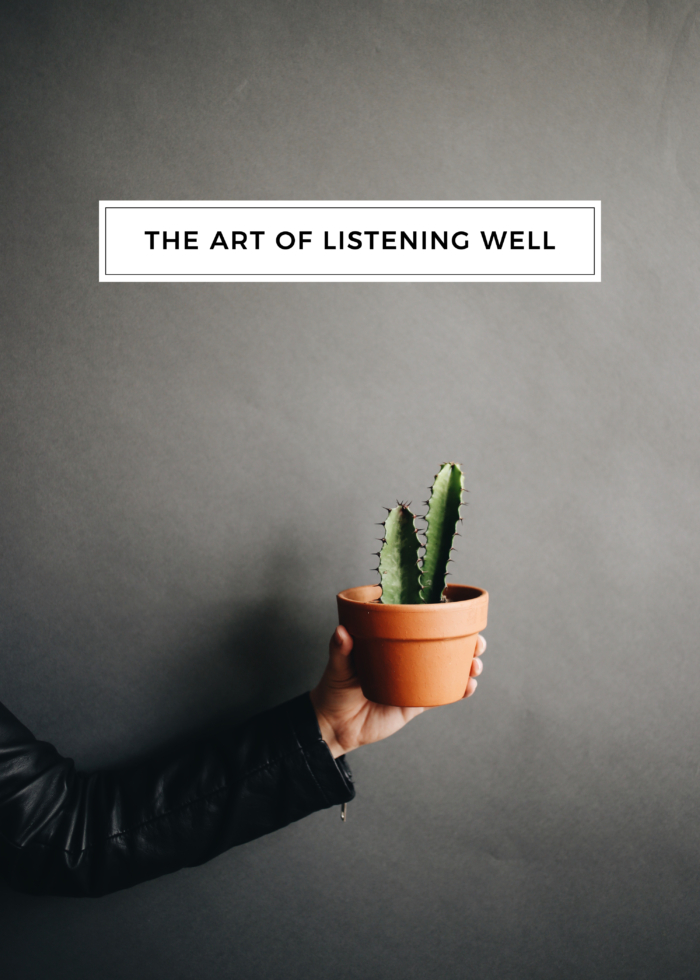October 3, 2017
THE ART OF LISTENING WELL
Have you ever had a conversation with someone that clearly wasn’t listening to you? Whether the person was distracted by their phone, quickly changed the subject, interrupted you mid-sentence, or did not respond appropriately, it is no fun to feel like your words are not being heard, understood, or appreciated.
Surely, you have been in a situation that made you feel a bit foolish because what you said was brushed off or ignored. And as much as you hate to admit, you have probably been on the other end of the equation; acting disengaged or uninterested when someone is speaking to you.
Listening goes deeper than just hearing someone’s words. When done right, it empowers and encourages others. In a work setting, team members that listen well create a safe and healthy culture; one that can thrive even among stressors or changing circumstances.
A great conversation is characterized by actively listening, seeking to understand, and responding with intention.
LISTEN ACTIVELY
Listening well starts with freeing yourself from distraction. In today’s world of constant notification dings and hectic life schedules, simply giving someone undivided attention speaks volumes. When you, for example, decide not to answer a text during a conversation, you are placing the importance on the person in front of you rather than yourself. Body language also plays a huge role in listening well. Leaning in toward the person who is speaking or nodding from time to time in agreement makes someone feel like what they have to say is valuable.
SEEK TO UNDERSTAND
A good listener listens to others with an open mind. It is important to realize that every person we come across is seeing things from a different perspective than we are – and that is a good thing! You can make sense of what someone is really saying by getting to know their personality and perspectives. Listen to others in a way that values people’s differences.
RESPOND WITH INTENTION
On the flip side of listening well is responding well. Repeat details of what was just said to clarify details. Ask questions to gain more understanding into the other person’s world. Most importantly, make the other person feel at ease when they are speaking with you, realizing that the words you choose are important, but it’s the intangible things like a smile or eye contact that encourage others to contribute.
Being a good listener boils down to selflessness. A good listener puts the other person’s needs and ideas before their own. A good listener responds graciously and appropriately because they understand the perspective of the person they are speaking with. As we go about our week, let’s be mindful of how we listen.
words by lindsay – project manager
Leave a Reply
Start creating your beautiful brand STORY.
GET STARTED

ADD A COMMENT +
Comments
0